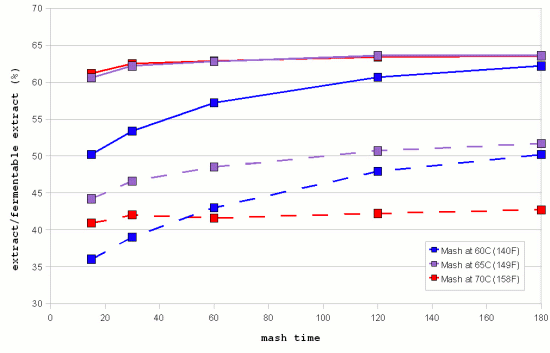We get threads like this all the time.... remember, not every proprieter reads every forum or book or listens to every podcast, so the last book or info they may have learned may be in Papazian from 30 years ago. They also may only brew kits. Or simply JUST be of the "you can't teach an old dog new tricks" mentality.
But not every person, especially one of those "you can't teach an old dog" types aren't going to be up on the latest ideas.
Remember to a lot of LHBS'er or employees, it is only a job..not an obsession...so they are not always as necessarily passionate, or zealous learning new things, or trying new techniques, like we are....SOme even though they have been in the business forever, may never had progressed in the hobby beyond extract kits...some may rarely brew at all.
So often it is not surprising that we know more or are at least in touch with more info that someone who does it for a living....
I'm lucky I have quite a few homebrew shops to choose from, one that I can walk to, although his selection is limited due to not a lot of business (which we hb'ers in town are trying to correct)- AND he just told me that it looks like he might be moving right across the street from my loft
(and opening a pico-winery and perhaps a brew on premise)
Then halfway between work and home, around the corner from my sister's house is the Holy mecca of Homebrew shops, Cap N Cork (which IIRC is the first hbs in metro detroit) it's large, has a high turnover so ingredients are fresh, and has quite a few employees, most of who are a passionate about brewing as we are...but even there you have a few oldtimers, who don't read every book, or look at forums, so they might not be up on the latest things...
One thing to remember, This is an ever evolving hobby...Places like this is where you find the most state of the art information/wisdom about brewing, because of the sheer number of us trying new things, hearing new things, and even breaking new ground and contributing to the body of info on the hobby...Look at some of that inventions that came out of here, and then ended up later in BYO articles by our members...
It is podcasts and forums like this where you will find a lot more state of the art, or current views, and even scientific information...I mean if Jamil, John Palmer or Papazian even farts on a podcast, one of us beergeeks are going to start a thread on it within 10 minutes.
So if you are dealing with ab old school LHBS owner/employee...don't back down, and don't let him get to you...
Remember- It is HUMAN nature to scorn that which we don't understand... It even happens on here sometimes, when someone attempt to break new ground, or suggest something different from common wisdom (we still get people who scorn the idea of long primaries, and still believe in autolysis)...but it really is not the norm here.
But not necessarily "out there" in the world of Home brew shops.
In fact if you have one like that, Don't even tell him what you are doing buy your stuff, give him your money, and whistle your way out the door..knowing that what you might be attempting is probably light years ahead of HIS knowlege base.....

















































![Craft A Brew - Safale BE-256 Yeast - Fermentis - Belgian Ale Dry Yeast - For Belgian & Strong Ales - Ingredients for Home Brewing - Beer Making Supplies - [3 Pack]](https://m.media-amazon.com/images/I/51bcKEwQmWL._SL500_.jpg)









